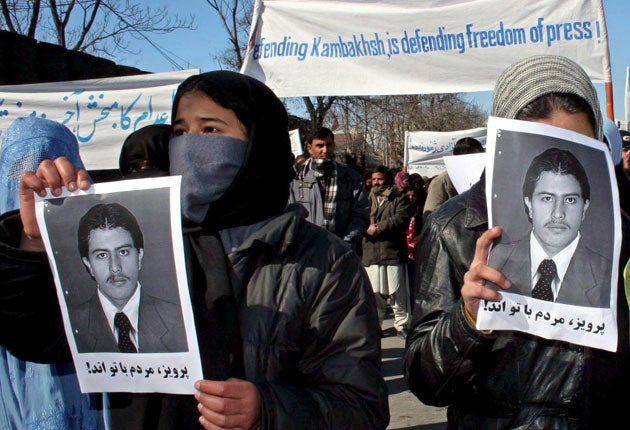Katherine Butler: Afghan women now face new dangers

One reason for the widespread public support for the 2001 invasion of Afghanistan was genuine revulsion at the treatment of Afghan women under the Taliban. Shocking videos of women being flogged or executed by firing squads in football stadiums for "adultery" had been smuggled out by campaigners in the late 1990s. Many people assumed that with the disappearance of Mullah Omar and his extremist followers, women would no longer be regarded as lower in status than farm animals, fit only for household drudgery or reproduction.
Girls would be able to go to school, and their mothers or sisters allowed to work, or even just enjoy ordinary pleasures such as travelling in a taxi, singing, laughing in public, or venturing out of the home without a male relative or a heavy blue cloak covering every inch. Western leaders were eager too to play up the "liberation of the women" as one of the noble aims of the military engagement in Afghanistan.
Pervez Kambaksh has now benefited from a behind-closed-doors act of clemency from the Afghan president. But the fact that the student must flee in fear of his life because he circulated an article questioning attitudes to women in Islam suggests that the supposed introduction of democracy and eight years of war have delivered scant progress.
True, Afghan women can now work and become MPs, but acid is still thrown in the faces of little girls trying to go to school, violence against women is rampant and the Karzai government recently enacted a law which in effect allows men to demand sex or starve their wives. As Brad Adams of Human Rights Watch put it, Karzai made "an unthinkable deal" because he needed to buy the support of fundamentalists in the 20 August elections.
The Taliban are not in power, but women can still be sold out because Western-backed politicians, in hock to men whose views on women are just as conservative as the Taliban, don't consider their rights a priority.
The fear that human rights will be even further eroded is now immense as Afghanistan moves to a phase in which the policy of "talking to the Taliban" is implemented.
"Reconciliation" is the new buzzword in diplomatic and military circles as the generals try to end the insurgency. But if this means again giving fundamentalists and floggers positions of power and influence, then women will be looking on with justified horror.

Join our commenting forum
Join thought-provoking conversations, follow other Independent readers and see their replies